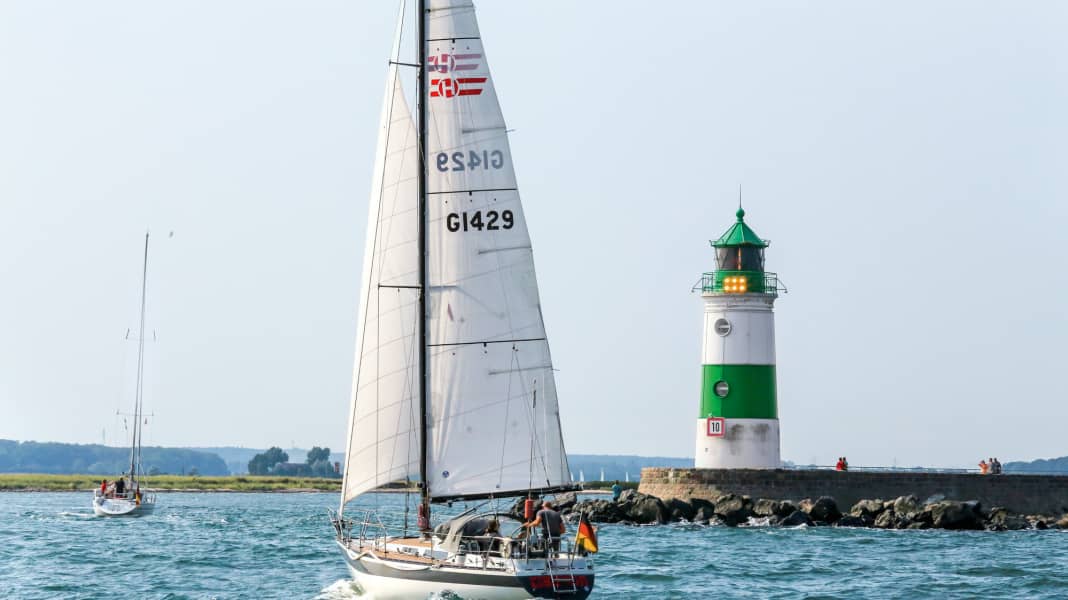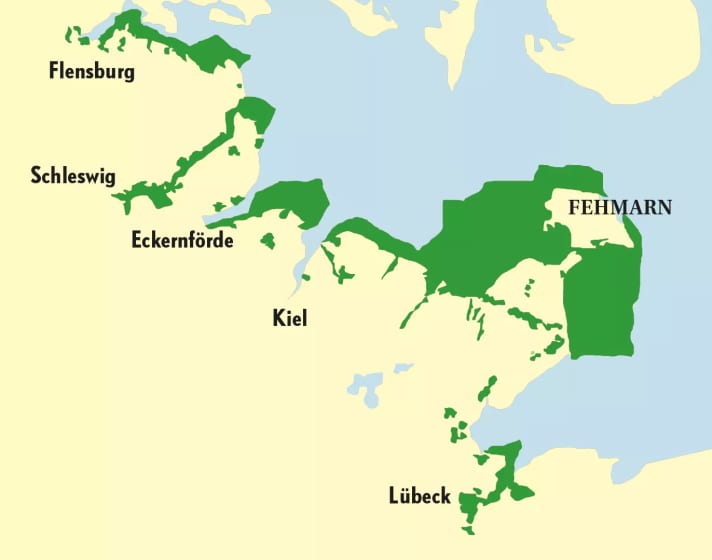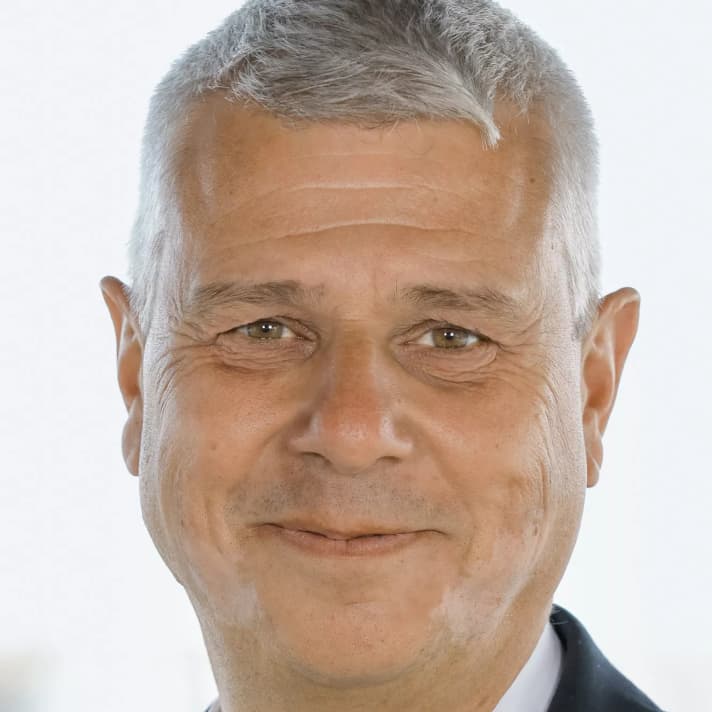Ministry wants protection zones: Baltic Sea to become a national park, sailors face restrictions
Jan Zier
· 15.12.2022

Tobias Goldschmidt, Minister of the Environment in Schleswig-Holstein, has presented initial plans for a "Baltic Sea National Park". It is intended to connect the various nature and bird sanctuaries on the Baltic Sea and at the same time "deepen their protection", as the Green politician says - so that the Baltic Sea "will be better again in the future". This could result in massive restrictions for water sports. In total, an area of up to 140,000 hectares along the coast is at stake. However, it is still unclear which areas will actually become part of the national park. However, Goldschmidt is calling for "large protected areas". He stated: "If it becomes too small-scale, a national park makes little sense."
Goldschmidt's announcement is causing quite a stir on the Baltic coast. An intensive and open-ended consultation process with the stakeholders concerned is now to take place in spring," explains a ministry spokesperson. This will also include a discussion on which regulations should apply to water sports on the Baltic Sea in future. Until then, the ministry will not be answering any questions for the time being: they "do not want to pre-empt" the debates.
National park means 50 % area without utilisation
It is clear that there should be so-called zero utilisation zones in which shipping and fishing would be taboo. In a national park, at least 50 per cent of the area would have to be left to nature - similar to the Wadden Sea National Park, which is around 300,000 hectares larger than the potential on the Baltic Sea. However, there are far fewer sailors on the North Sea than on the Baltic Sea. The ministry, on the other hand, hopes that the new national park will provide "a real boost in attractiveness" for the Baltic Sea coast and "enormous opportunities for tourism and the economy", as Goldschmidt told the Schleswig-Holstein newspaper publisher.

The Jasmund National Park in the north-east of the island of Rügen, which belongs to Mecklenburg-Vorpommern, already exists today. It covers around 3,000 hectares, making it Germany's smallest national park. It consists of 20 per cent water areas and offers harbour porpoises and grey seals a retreat. Sailing is prohibited here in a 500 metre wide shore zone.
Similar to the Wadden Sea National Park or the Western Pomerania Bodden Waters National Park, "any overnight stays on yachts would no longer be possible", fears Jens Giermann from the regional sailing association in Schleswig-Holstein. "Sailing with travelling dinghies in the coastal area would be just as impossible as sailing training with the youngest on optimists or youth dinghies." He strictly rejects Goldschmidt's plans: "That would be unacceptable from a sailing perspective. Even Kiel Week could no longer take place in its current form."
Water sports industry fears restrictions
The association represents over 200 clubs with more than 30,000 sailors. According to Giermann, the protection of biodiversity in the Baltic Sea is generally welcomed. However, sailing is a "focal sport" in Schleswig-Holstein and "a defining feature of the state's image". It is therefore clear: "There must be no restrictions here that hinder us in achieving our goals in youth work in the clubs through to competitive sport," said Giermann. "It is unacceptable for sailing in the land between the seas to be categorised under tourism." It is assumed that the sailors will be "significantly" involved in the plans of the Ministry of the Environment.
It is unacceptable for sailing to be categorised under tourism in the land between the seas."
Harbour operators are also concerned: "It is important for the water sports industry and tourism that the Schlei, for example, can be navigated by sailors at the same intensity as before," says Hauke Steckmest, whose marina and Scalar shipyard are located on the Schlei. The greater Kappeln area has around 10,000 inhabitants, but just under 2,000 berths for yachts from Arnis to Maasholm. Water sports are a major economic factor here. It is feared that if the national park is established, one or two yachtsmen could move to nearby Denmark. There are fewer restrictions there.
Three questions for Andreas Löwe
Andreas Löwe, 56, is a lawyer by profession and, as DSV Vice President, is responsible for environmental and legal issues
What does the DSV think of the plans for a Baltic Sea National Park?
The German Sailing Association is critical of the plans. As a hub for bird migration and due to its unique tidal morphology, the Wadden Sea rightly enjoys the highest protection status under nature conservation law. If the condition of the Baltic Sea is now to be improved, we are convinced that this is not a sufficient basis for upgrading the existing status to that of a national park. A whole series of measures are already planned for the Baltic Sea.
What would sailors have to face?
The Baltic Sea is the most important and most significant area for water sports in Germany. The Schleswig-Holstein Baltic Sea is the venue for numerous world and European championships as well as the Kiel and Travemünde Weeks, which attract thousands of sailors and hundreds of thousands of tourists every year. This is in danger. Our experience with the Wadden Sea Navigation Ordinance gives rise to fears that there could also be a series of restrictions and ideological bans for the Baltic Sea.
What happens now?
The DSV will speak out vehemently against disproportionate restrictions. We expect the state of Schleswig-Holstein to be involved in the announced dialogue on a possible Baltic Sea National Park from the outset.


